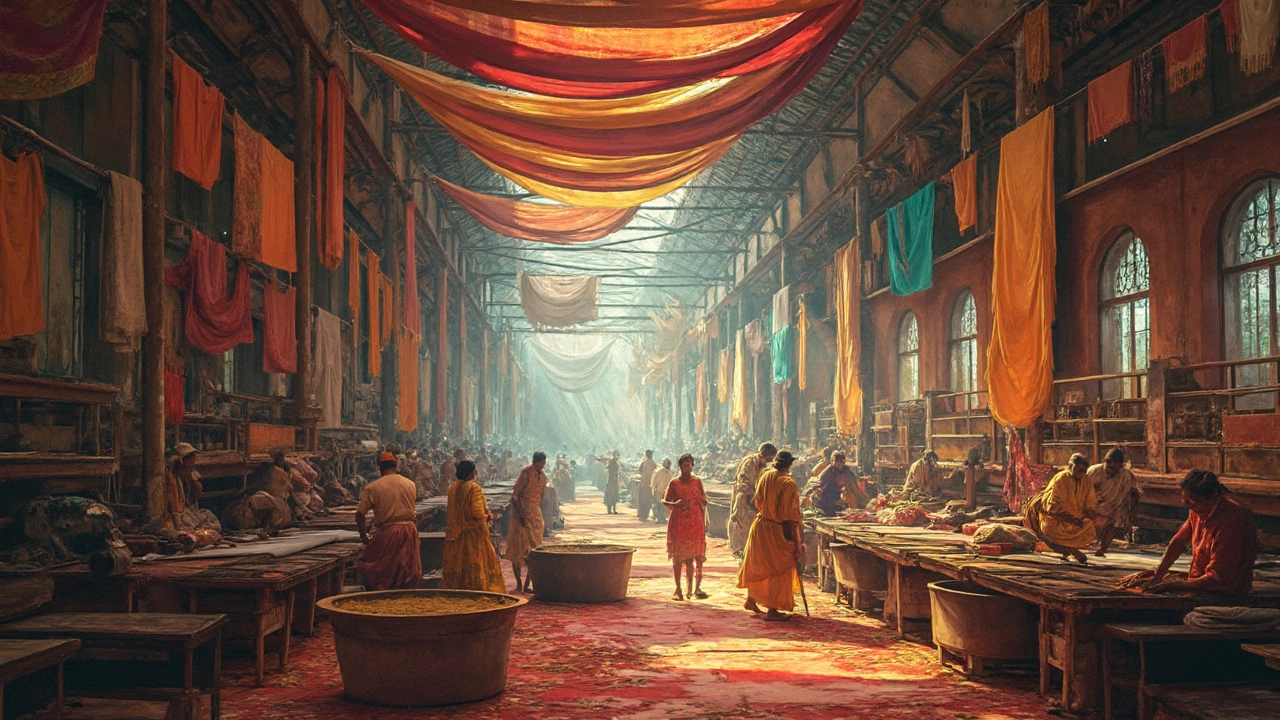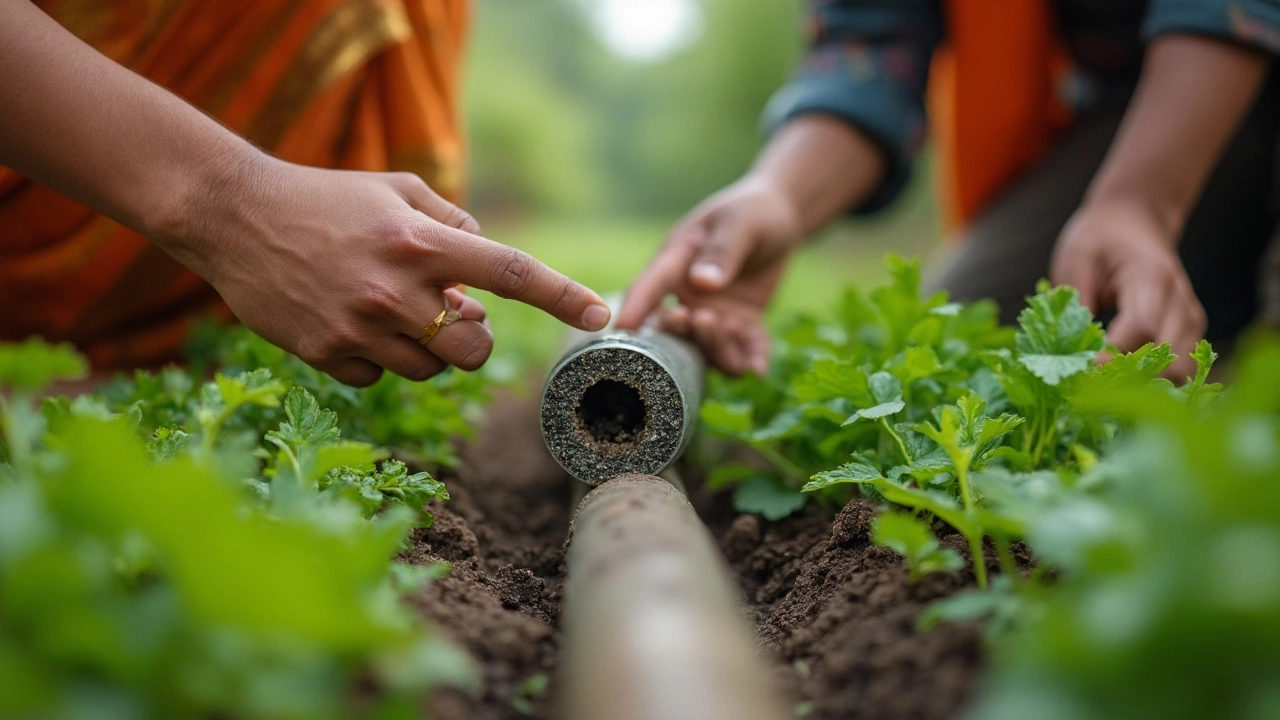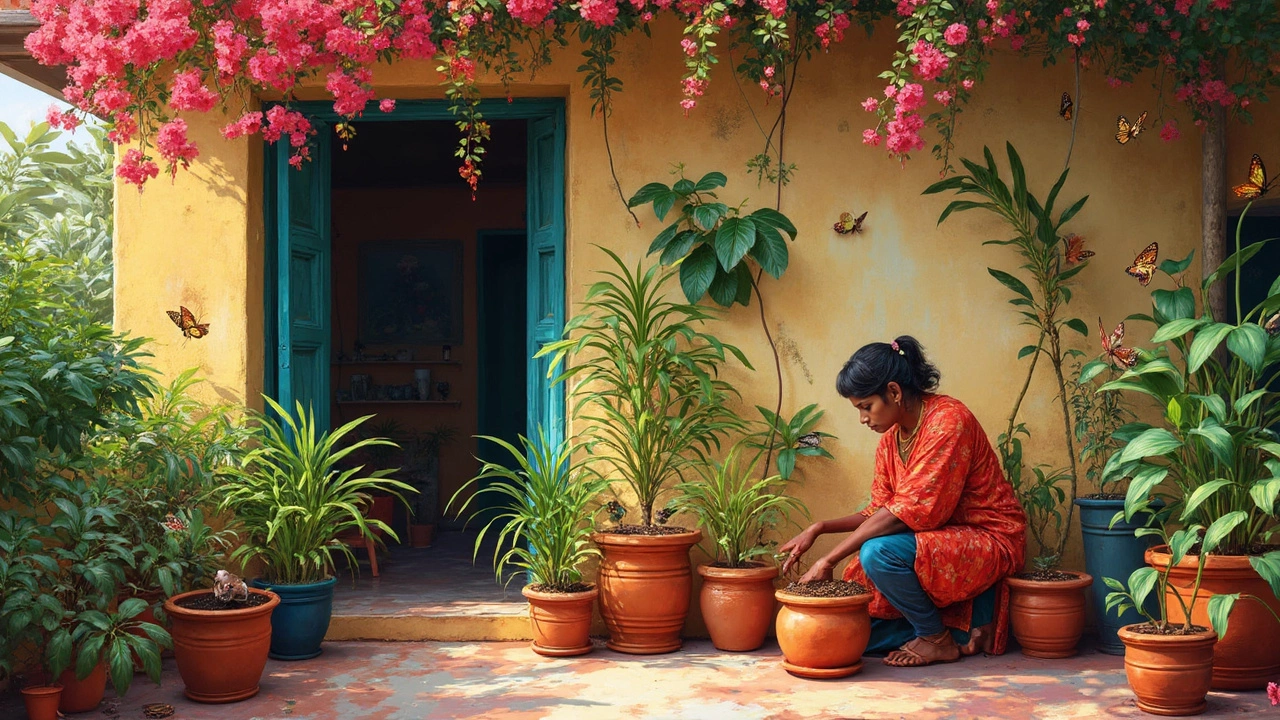Indian Textile Industry: Heritage, Innovation, and Sustainability
When talking about Indian Textile Industry, the network of farms, mills, designers, and exporters that turn raw fibers into fabrics for local markets and global shelves. Also known as India’s textile sector, it fuels millions of jobs and shapes cultural identity.
A backbone of this sector is cotton, soft, breathable fiber grown across Gujarat, Maharashtra, and Tamil Nadu. Cotton supplies the bulk of yarn for woven and knitted fabrics, and its quality directly influences the value of final garments. Another pillar is the fabric heritage states, regions like Bhilwara, Kanchipuram, and Varanasi known for unique weaving techniques and locally prized textiles. These states preserve centuries‑old handloom traditions while also feeding modern factories with specialty designs. Indian textile industry growth now hinges on sustainable manufacturing, practices such as water‑saving dyeing, renewable‑energy‑powered mills, and low‑impact chemical use. Sustainable manufacturing reduces waste, cuts costs, and meets rising consumer demand for eco‑friendly apparel. Finally, textile exports, the flow of finished garments to the US, EU, and Middle East that generate significant foreign exchange for India showcase the sector’s global relevance.
How These Elements Connect
The Indian textile industry encompasses cotton production, regional heritage, sustainable processes, and export markets. It requires skilled artisans in heritage states who translate raw cotton into high‑value fabrics. Sustainable manufacturing influences both the domestic supply chain and the competitiveness of exports, because greener factories attract premium buyers abroad. Moreover, the rise of eco‑labels in key export destinations pushes Indian mills to adopt cleaner technologies, creating a feedback loop that benefits local ecosystems and farmers.
Recent policy shifts also illustrate the intertwined nature of these entities. The government’s “Textile Skill Development Mission” funds training programs in Kanchipuram and Varanasi, aiming to preserve handloom knowledge while upgrading workers for mechanized sustainable production. Simultaneously, subsidies for solar‑powered dyeing units lower operational costs, making Indian-made garments more price‑competitive in Europe’s fast‑fashion market.
For entrepreneurs, understanding this web of relationships is vital. A startup that sources cotton directly from farmer cooperatives, applies low‑water dyeing methods, and markets its products as “heritage‑inspired exports” can tap into three growth levers at once: cost‑effective raw material, sustainability premium, and brand story that resonates internationally.
Readers will find below a mix of deep‑dive articles, case studies, and practical guides that reflect these themes. From a look at cotton‑yield trends in Gujarat to a profile of how Varanasi’s silk weavers are adopting solar kilns, the collection offers concrete insights you can put to use right away.
Browse the posts to see how cotton, heritage states, sustainable factories, and export strategies shape today’s Indian textile landscape, and discover actionable ideas for your own projects.
Indian Textile Industry Collapse: Unraveling the Threads
The Indian textile industry, once a powerhouse of global textile manufacturing, has faced a significant collapse. This analysis explores the reasons behind the downturn, such as rising competition from international markets, outdated technology, and inadequate government support. With a focus on policy insights and industry challenges, the article provides a comprehensive understanding of the industry's decline. Additionally, it highlights potential strategies for revitalization and sustainability.
- manufacturing
- India
- food processing
- garden tips
- rice cultivation
- government schemes
- balcony garden
- urban gardening
- balcony gardening
- profitable business
- business ideas
- plastic manufacturing
- drip irrigation
- plant care
- steel manufacturing
- sustainable gardening
- startup ideas
- steel industry
- flower gardening
- textile manufacturers






